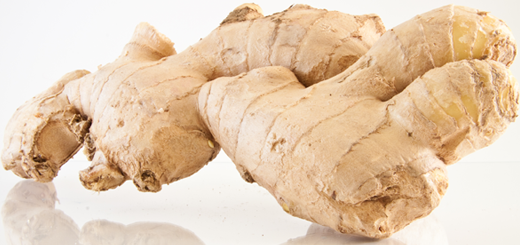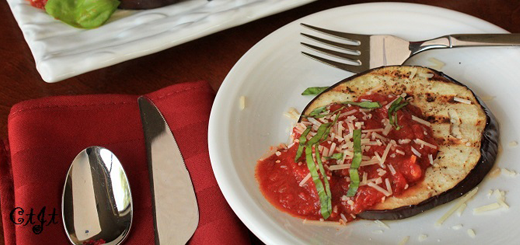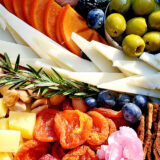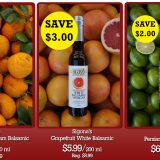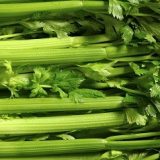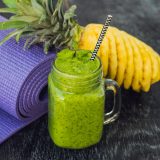Stone Fruit Straight From the Farm

Geri Wohl, CNC
Better Eating Coach
Written By: Geri Wohl, CNC www.bettereatingcoach.com
How can you resist fruit with the names “Honeykist”, “Diamond Ray”, “Snow Princess” or “Ice Princess”? These are some of the varieties of nectarines and peaches coming straight from Paul Buxman’s Sweet Home Ranch near Fresno. And sweet is just what this fruit is! The flavors are a delight for the taste buds. I had the pleasure to interview Paul about his farm and unique growing techniques. Once you learn about his farming practices, you will appreciate these local, intense fruits even more!
Large peaches and nectarines have just 68 calories and no sodium or cholesterol. They both are high in fiber, providing about 10% of the RDA. In addition, they are also rich in vitamin C and vitamin A, providing support for our immune systems, skin and bone health. Both inside and out, peaches and nectarines are filled with significant antioxidants that help combat harmful free radicals. For more about the benefits of these stone fruits, see my article, “Nectarine Nutrition“.
To the interview with Paul…
How did he get into farming?
Farming has been in his family’s blood for three generations. He inherited the family ranch, now at 55 acres, and feels a strong relationship with the earth. The farm grows peaches, nectarines, plums, persimmons, mandarins and seedless concord grapes. In addition, they have set aside a plot of land where other produce is grown for the community.
With so many different fruits, tell us about the running of Sweet Home Ranch?
The farm has 30 to 35 different fruit varieties. Fortunately, the different fruits ripen sequentially so that each variety can get the attention it needs. In addition, Paul and his wife, Ruth, use any overripe fruit that can’t be sold commercially to make fruit preserves that are then hand signed. The days are long—5 am to 9 pm with Sundays off. They employ about 10 people some of whom have been with them for 20 to 25 years. They treat their workers like their own family and their welfare is paramount. They would much rather lose some fruit than have their workers be sick from working in 110-degree weather.
Having tasted the peaches and nectarines, they are truly delicious. What’s involved in knowing when the fruit is ready for harvest?
Judging the fruit is not an exact science. The riper fruit will be at the top of the tree. If it has a green tinge, then it is not ready. Unlike commercial growers who pick the fruit up to three weeks early and let it ripen while in transit, Paul and his crew pick the fruit when it is ripe since they don’t have to account for the extra time to get from the farm to the store. In fact, his fruit is delivered within 24 hours of picking. Wow—that is so fresh! It is also the reason that the varieties that he grows are so sweet and delicate. They can opt for varieties that are less durable but taste “honey kissed”. He looks for overripe fruit on the ground and then picks 10 pieces of fruit. If two are overripe, then the picking can begin. Any overripe fruit is not thrown away. It is used to make their signature homemade preserves.
What’s the process of growing a wonderful product without the use of pesticides?
After a lot of experimentation, he developed a process called integrated pest management (IPM) allowing the beneficial bugs and insects to do the work in ridding the fruit trees of harmful pests. In fact, the farm received the EPA’s first IPM Innovator’s Award for the reduction of pesticide use. Weeds are encouraged to attract the beneficial insects that will fight off the pests that can wreck havoc on the fruit trees.
With California in a serious drought, tell the readers what the farm is doing to reduce water usage?
Sweet Home Ranch is using 75% less water now than it did five years ago. Instead of drip irrigation that only gets water to the upper level of soil by the root ball, they water via furrows of pumped ground water that extend to the drip line thus optimizing our precious water. In addition, mulch is used extensively. Not only will mulch lower weeds in unwanted areas, it adds important nutrients back into the soil.
Compare the peaches and nectarines grown at the farm with the big commercial supermarkets?
If you eat the farm’s fruits, you will know with the first bite that you are having something special. They are infinitely sweeter. In terms of nutrition, the USDA level of vitamin C is 200% above conventionally grown peaches and nectarines. In addition, other nutrient levels are much higher as well. For instance, calcium is much enhanced due to the compost used. The compost is partially comprised of chicken bones and eggshells that are rich in calcium, which then leaches over time into the soil and is then taken up by the roots of the tree. Also, when you get fruit picked the day before, the vitamins, minerals and antioxidants haven’t had the chance to degrade as those that have been sitting for 2 to 3 weeks. To appreciate more fully about eating as locally as possible, see Geri’s article, “Eating with the Seasons“.
What’s the process to get the different varieties and flavors in the fruit?
The different varieties of peaches and nectarines are a result of pollination. The farmer can act as the pollinator instead of bees and birds. In fact, “every good farmer is a geneticist.” To create a new variety, it takes years of experimentation. Grafting may be used on trees that are past their prime. Alternatively, the farmer may pollinate the fruit by hand to get exactly the characteristics desired. Flavors are tricky. It is dependent on the genes. White peaches or nectarines are typically less acidic and have floral notes. They are very sweet and easy to digest. These are sometimes referred to as “sub acid”. The acid fruits are those with yellow flesh. The acid (this includes vitamin C which is also called ascorbic acid) acts as a flavor carrier.
Farming these fruits is a labor of love. As Paul so eloquently states “Anything not about love is not anything”. Here’s to our local farmers and the products of their love!
© Geri Wohl, CNC


